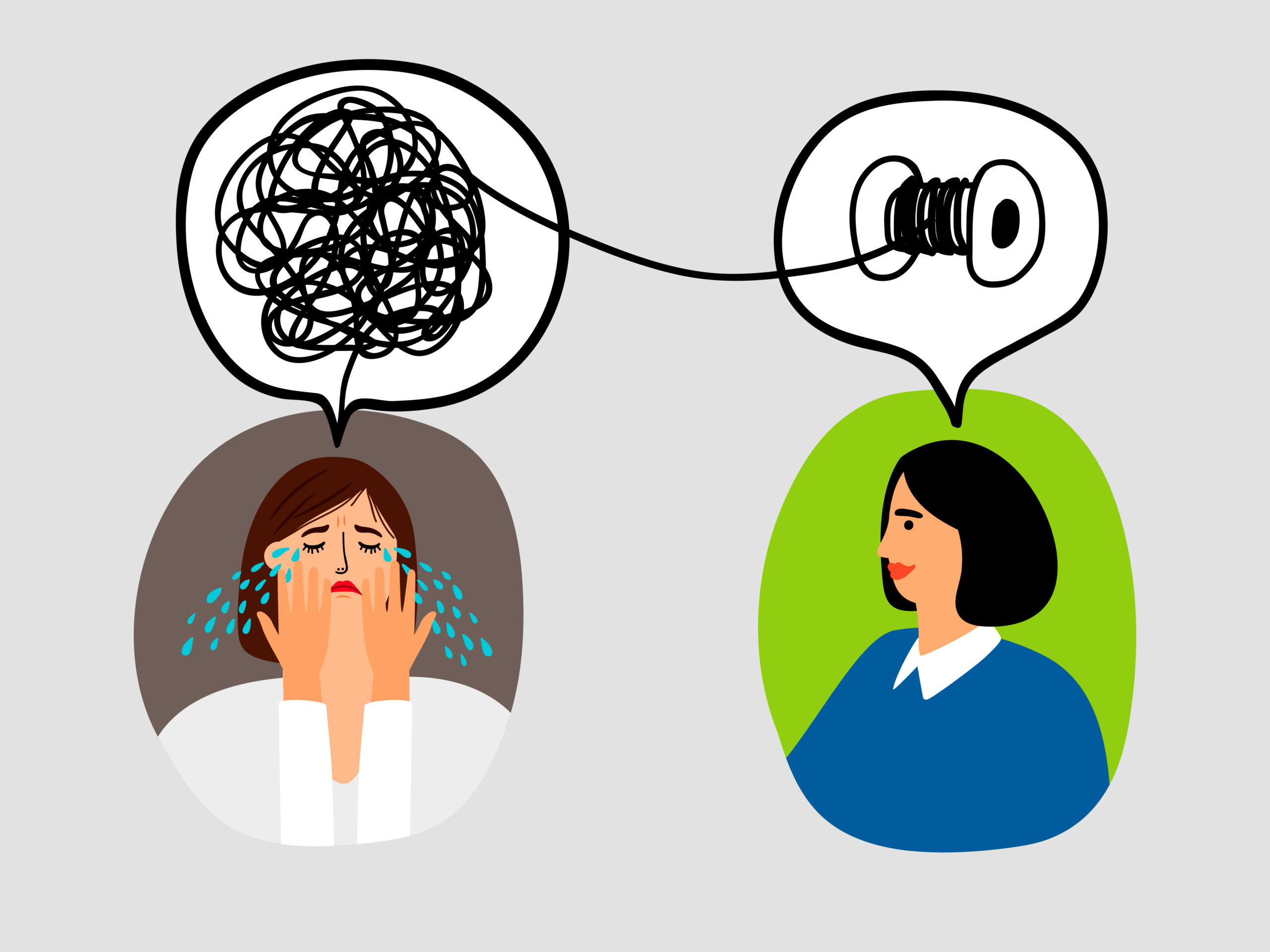Comparing Individual Therapy For Teens vs. family counselling options
Wiki Article
Checking out the Benefits of Mental Therapy for Teen Wellness and Growth
Mental treatment plays a critical role in the well-being and development of young adults. Teenage years is a tumultuous period marked by psychological and social difficulties. Therapy provides a structured environment for teenagers to express their feelings and challenge their battles. It equips them with vital devices for strength and interaction. As they browse this developmental stage, the influence of therapy can be profound. What particular benefits can arise from such support throughout these formative years?
Recognizing the Adolescent Mind: Stress and challenges
As teenagers browse the intricacies of their developing phase, they deal with various challenges and stress that can considerably affect their mental health and wellness. This period is marked by significant physical, psychological, and social modifications, which can induce sensations of confusion and uncertainty. Peer impact increases, commonly leading to a battle for acceptance and identity. Academic expectations can produce extra stress and anxiety, as the stress to succeed mounts in a progressively competitive environment.Moreover, the advent of social media sites introduces a brand-new layer of intricacy, where contrasts to curated online identities can aggravate sensations of insufficiency and anxiousness. These elements can cause psychological distress, consisting of anxiousness, clinical depression, and low self-esteem. Comprehending these obstacles is crucial for moms and dads, educators, and psychological health experts, as it offers understanding right into the teen experience and highlights the requirement for encouraging treatments to cultivate strength and wellness throughout this crucial developing stage.
Producing a Safe Space for Expression
Creating a secure room for expression is necessary for adolescents navigating their turbulent developing phase. In restorative settings, this atmosphere fosters open discussion, enabling teenagers to interact their feelings without fear of judgment. Such spaces enable them to discover their thoughts and emotions, which is necessary for recognizing their identifications and experiences.When teens feel safe, they are more most likely to share their battles, including anxiety, depression, or interpersonal disputes. This open interaction can lead to much deeper insights and facilitate personal development.
A safe space encourages creative thinking and self-reflection, offering young adults the flexibility to reveal themselves through various outlets, such as art or writing. Developing depend on in between the specialist and the teen is crucial, as it underpins the performance of the therapeutic procedure. Ultimately, developing a risk-free space for expression functions as a foundation for psychological healing and personal growth throughout these formative years.
Creating Coping Approaches and Resilience

Therapists frequently introduce techniques such as mindfulness, journaling, and analytic abilities, making it possible for teenagers to handle their reactions better. Furthermore, by taking part in role-play circumstances, they exercise how to handle difficult circumstances, strengthening their confidence. Gradually, these skills cultivate a feeling of agency, furnishing young adults with the tools to browse life's uncertainties. The growth of strength not only help in getting rid of prompt obstacles however likewise prepares for much healthier emotional reactions in the adult years, eventually adding to long-lasting wellness.
Enhancing Communication Abilities
Efficient interaction skills are essential for teenagers as they browse complex social landscapes. Psychological treatment plays a vital role in improving these skills, permitting teenagers to express their ideas and emotions extra plainly. With directed sessions, specialists motivate teenagers to articulate their feelings, facilitating much better understanding in peer interactions and family characteristics.Therapy provides a risk-free space for exercising energetic listening, empathy, and assertiveness. These skills equip teenagers to participate in purposeful conversations, resolve disputes, and construct more powerful connections. As they discover to connect properly, they likewise obtain confidence in their capacity to support for themselves and their needs.
Furthermore, improved communication abilities add to emotional intelligence, allowing teens to react and acknowledge to the feelings of others. This alternative growth cultivates a helpful environment, ultimately promoting total well-being and social assimilation. With mental therapy, young adults can grow these necessary abilities for a much healthier social experience.
Cultivating Individual Development and Self-Discovery
Cultivating individual development and self-discovery in teenagers entails a diverse technique that encourages understanding of personal identity. This process likewise stresses the value of building resilience abilities and boosting emotional understanding. Together, these elements develop a structure for healthier, more positive individuals as they navigate their formative years.Comprehending Individual Identity
Exactly how do teens navigate the complex landscape of individuality as they venture for self-discovery and development? During this formative period, they come to grips with numerous influences, consisting of peers, family, and social assumptions. Mental therapy can act as an important device, supplying a secure space for expedition and reflection. Through guided conversations, young adults can verbalize their feelings and thoughts, allowing them to recognize their wishes, worths, and ideas. This process fosters a much deeper awareness of their distinct identification, empowering them to make educated choices and develop a sense of purpose. As they take part in self-discovery, they find out to welcome their uniqueness and navigate obstacles with better clearness, ultimately boosting their total wellness and personal development.Structure Strength Abilities

Enhancing Psychological Understanding
Enhancing emotional awareness is essential for teenagers maneuvering the complexities of teenage years, as it allows them to determine and understand their sensations better. By participating in mental treatment, adolescents find out to acknowledge their psychological actions and the triggers behind them. This process cultivates Individual Counselling Services personal growth and self-discovery, allowing them to verbalize their emotions and handle obstacles more expertly. As teenagers create psychological awareness, they cultivate compassion, boost connections, and improve communication abilities. Furthermore, this heightened awareness help in decision-making, helping them navigate social pressures and develop a sense of identity. Inevitably, fostering emotional recognition via treatment can result in healthier coping mechanisms and a much more balanced emotional state, essential for thriving during these developmental years.Building Healthy And Balanced Relationships and Assistance Systems
While passing through the complexities of adolescence, building healthy and balanced relationships and support group is important for teens. These links provide psychological security and a sense of belonging, vital during this developing stage. Positive partnerships with peers, family, and advisors can improve self-esteem and durability, making it possible for teens to browse difficulties more successfully.Mental treatment plays a pivotal role in promoting these relationships by equipping teenagers with interaction and conflict-resolution skills. With therapy, they find out to express their feelings, comprehend various viewpoints, and establish limits, which are essential for preserving healthy communications.
Helpful networks motivate teenagers to seek help when required, lowering seclusion and promoting mental wellness. They are more most likely to involve in useful behaviors and make notified choices when adolescents really feel connected to their support systems (Individual Therapy Toronto). Generally, the cultivation of healthy and balanced connections and support group contributes in advertising teenage wellness and personal development
Frequently Asked Concerns
How Do I Discover a Certified Therapist for My Young adult?
To locate a certified specialist for a teen, one should look for recommendations from doctor, study qualifications on-line, examine reviews, and establish the therapist concentrates on teen problems, cultivating a supportive atmosphere for development.What Are the Costs Connected With Mental Treatment for Teenagers?
The expenses connected with mental therapy for teenagers differ extensively, usually ranging from $50 to $250 per session. Insurance policy coverage, sliding range charges, and neighborhood sources can influence affordability and accessibility for families looking for support.
How Frequently Should Teenagers Participate In Treatment Procedure?
Teenagers should preferably participate in treatment sessions weekly or biweekly, relying on private demands. Regular sessions can promote a secure area for expression, while enabling specialists to keep an eye on progress and change strategies effectively gradually.Can Treatment Work for All Teenagers?
Therapy can be efficient for many teens, but private results vary. Elements such as individual scenarios, visibility to the process, and the therapeutic technique utilized all influence its effectiveness for each and every teen.What Should Parents Do Throughout Their Teen's Therapy Refine?
Moms and dads should actively sustain their teen's treatment procedure by preserving open communication, appreciating confidentiality, participating in sessions if welcomed, and encouraging their kid's efforts (Individual Teen Counselling). Recognizing and persistence are essential as teenagers browse their individual development journeyPsychological treatment plays a critical duty in the well-being and development of teens. By engaging in psychological therapy, adolescents discover to acknowledge their emotional actions and the triggers behind them. Psychological therapy plays a crucial role in promoting these partnerships by gearing up teens with interaction and conflict-resolution abilities. Young adults need to ideally attend therapy sessions once a week or biweekly, depending on private demands. Moms and dads must actively sustain their teenager's therapy process by preserving open communication, respecting privacy, attending sessions if invited, and encouraging their kid's efforts.
Report this wiki page